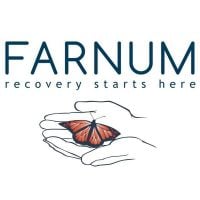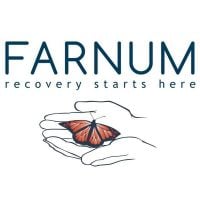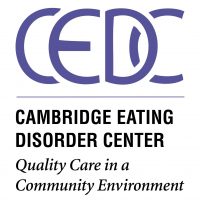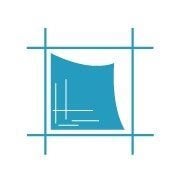Chrysalis Recovery Center
Drug Rehab Center in Franklin, New Hampshire
Chrysalis Recovery Center is an addiction treatment facility in Franklin, NH providing comprehensive care for individuals suffering from alcoholism, opioid abuse, dual diagnosis, and drug addiction; offering aftercare support, drug rehab and outpatient levels of care services as well as accepting private health insurance.
About Chrysalis Recovery Center in New Hampshire
Chrysalis Recovery Center is an Addiction Treatment Facility located in Franklin, New Hampshire. This facility was founded in 2009 and serves individuals suffering from various addictions, including alcoholism, opioid addiction, dual diagnosis, and drug addiction. Chrysalis Recovery Center offers a range of services to meet the diverse needs of their clients, including aftercare support, drug rehab, and outpatient levels of care. With a strong focus on holistic recovery and individualized treatment plans, Chrysalis Recovery Center aims to provide comprehensive support to help individuals overcome their addiction and achieve long-lasting sobriety.
Chrysalis Recovery Center adopts an integrated approach to addiction treatment, providing a variety of services tailored to each individual's unique needs. They offer counseling and therapy sessions that incorporate evidence-based techniques such as cognitive-behavioral therapy (CBT) and dialectical behavior therapy (DBT). These therapeutic interventions aim to address underlying issues related to substance abuse while equipping individuals with the skills needed for sustained recovery. Additionally, Chrysalis Recovery Center provides aftercare support beyond the completion of intensive treatment programs. This includes post-treatment planning assistance, relapse prevention strategies, group therapy sessions, and other resources aimed at supporting individuals on their journey towards lasting sobriety. By combining different modalities and offering ongoing support throughout the recovery process, Chrysalis Recovery Center strives to give individuals the best possible chance at successful rehabilitation.
Genders
Ages
Modality
Additional
Conditions and Issues Treated
Opioid addiction has become a significant health problem in the United States. When a person’s life becomes unmanageable because of an opioid addiction, treatment can help them get sober. Treatment includes medical care and counseling.
“With so many people struggling with opioid addiction, we need more care and attention for those who want to quit. Opioid addicts often take opioids when they experience a painful injury – that’s how the cycle starts! When someone begins taking their medication differently than prescribed or takes an excessive amount of drugs, it means they’re hooked on drugs and in danger of overdosing.
The most successful way to beat this is through detoxing from these types treatments at Chrysalis Recovery Center in . Most facilities start by using medical support during the process while providing counseling services; rehabilitation comes later on after treatment has been completed successfully.
Levels of Care Offered
This center offers a variety of custom treatment tailored to individual recovery. Currently available are Aftercare Support, Drug Rehab, Outpatient, with additional therapies available as listed below.
Outpatient programs at Chrysalis Recovery Center, the Franklin resident can live with their family while continuing with their job or studies. Treatment includes educating the patient on drug abuse, medications, and counseling sessions at the individual or group level. Outpatient treatment plans cover diagnosis, detoxification, management, and counseling. They are a popular option for those who have graduated from inpatient facilities.
Without aftercare support, addicts can easily relapse back into addiction. It is crucial to integrate the addict back into society. Aftercare support should take place after outpatient treatment has ended.
There are a few different types of aftercare support that patients can seek after completing an inpatient treatment program:
- 12 Step Self-help groups (AA, NA)
- Therapeutic communities,
- Long-term, structured sober living arrangements
- Halfway houses (residential treatment centers)
Many different support groups exist for addicts to seek help after treatment. Some are more effective than others, depending on the person’s addiction, background, and other factors.
Therapies & Programs
Individual therapy is a form of counseling where you meet with a trained professional one-on-one. Meeting with a therapist in this setting allows for a personal and trusting relationship to be built. This allows the patient to open up about sensitive or private issues they may not feel comfortable discussing in a group. Individual therapy helps identify the root causes of your addiction, which can help prevent relapse.
Couples therapy for drug addiction is a unique form of therapy that allows family members to work through the emotional issues of their loved one’s addiction together. Family members can support each other while learning how to cope with the addiction and encourage healthy changes. The two will work with a therapist to learn how the addiction affects themselves and the relationship.
Family therapy is often done alongside drug treatment to help addicts stay sober. The goal of family therapy for drug addiction is to create an environment where communication can happen without judgment, hostility, or blame. The therapist will sit with the family so they can learn how to communicate differently and provide new tools for dealing with emotions so that people don’t want to drink or do drugs. It’s important for families to focus on relapse prevention plans during treatment so that if the addict feels like they want to use again, they’ll know what steps they need to take together to prevent it from happening again in the future.
Group therapy sessions are another common addiction recovery service. These group sessions typically involve six to 12 addicts who meet regularly with a trained professional for support and guidance.
During these sessions, the group shares their experiences with one another and provides feedback that can help each member avoid relapse or overcome specific obstacles they are facing in their recovery process. With this type of support and guidance, addicts can feel like they are part of a community that understands their struggles and will help them get through the hard times.
Eye Movement Desensitization and Reprocessing (EMDR) therapy is a treatment method that helps reduce the impact of traumatic memories on individuals. It involves following a bar of light or watching a therapist’s finger move back and forth. This mimics the eye movements of REM sleep, which allows the brain to reprocess memories. EMDR therapy is combined with behavioral therapies to address the root cause of the problem. This reduces the desire to escape painful memories with drugs.
EMDR can be helpful for people who turn to drugs to escape traumatic events. It is a treatment that reduces the impact these memories have on emotions. Individuals who suffer from negative feelings associated with a traumatic experience can find relief in EMDR therapy. This treatment is combined with behavioral therapies. Patients follow a bar of light throughout the session or watch their therapist’s finger move back and forth. These rapid eye movements reduce feelings of negativity and promote calmness and relaxation. This minimizes the impact traumatic memories have on emotions, reducing the desire to escape painful memories with drugs.
It’s not as simple as quitting drinking or using drugs and expecting the hard part to be over. Many addicts in recovery have discovered that they need to improve skills such as time management, organization, communication, socialization, and self-esteem. Learning certain life skills can help those who are struggling with addiction.
Payment Options Accepted
For specific insurance or payment methods please contact us.
Is your insurance accepted?
Ask an expert, call (888) 674-0062
Additional Details
Specifics, location, and helpful extra information.
Franklin, New Hampshire 3235 Phone Number(603) 998-4210 Meta DetailsUpdated November 25, 2023
Staff Verified
Chrysalis Recovery Center Patient Reviews
There are no reviews yet. Be the first one to write one.
Franklin, New Hampshire Addiction Information
Opioids such as fentanyl, heroin, and prescription opioids form the largest drug threat in New Hampshire. More than 80% of all New Hampshire treatment centers admissions were related to one or more of these three drugs. Opioids such as fentanyl, heroin, and prescription opioids form the largest drug threat in New Hampshire. Since 2002, rates of alcohol dependency have also been among the highest in the country. In 2015, almost 15% of the residents were admitted to treatment centers for alcohol abuse.
The drug addiction problem in Franklin, New Hampshire is bad. According to the National Institute on Drug Abuse, in 2016, there were 1,547 drug overdose deaths in Franklin, which is a rate of 18.8 per 100,000 people. Opioid overdoses accounted for 60% of all overdose deaths. Treatment options vary depending on the person's needs and preferences, so it is important to find a facility that matches the individual's needs.
Treatment in Nearby Cities
- Franklin, NH (0.2 mi.)
- Pike, NH (44.1 mi.)
- Swanzey, NH (50.9 mi.)
- Seabrook, NH (54.9 mi.)
- Dublin, NH (42.8 mi.)
Centers near Chrysalis Recovery Center
The facility name, logo and brand are the property and registered trademarks of Chrysalis Recovery Center, and are being used for identification and informational purposes only. Use of these names, logos and brands shall not imply endorsement. RehabNow.org is not affiliated with or sponsored by Chrysalis Recovery Center.










